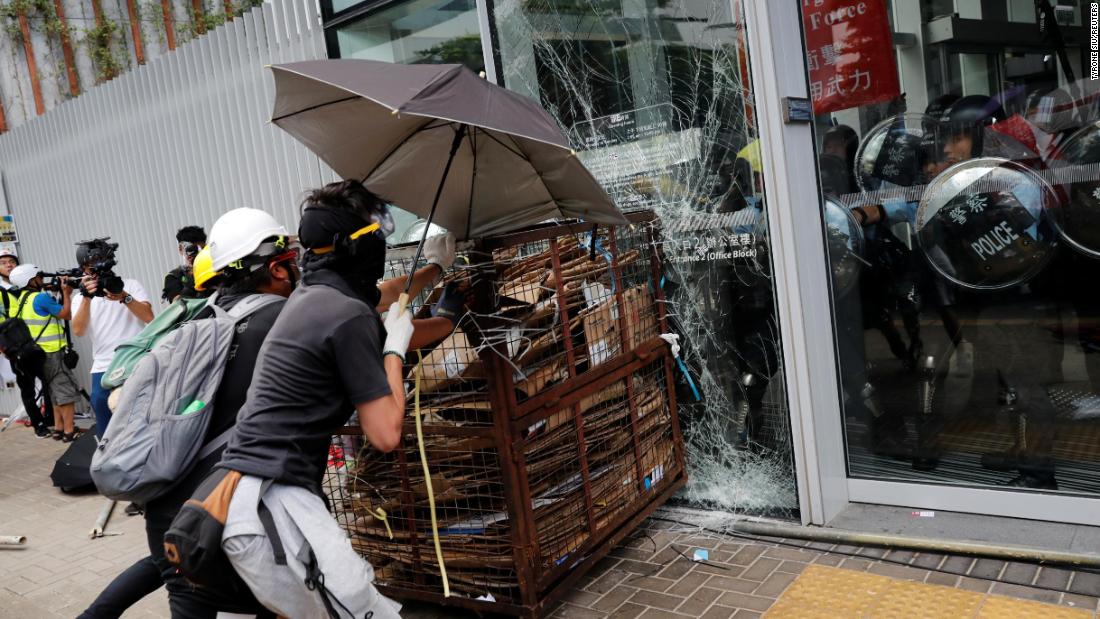
These protests have been about stopping a controversial extradition bill from taking effect. In previous years, residents have demonstrated over the right to pick their own leaders. The ultimate aim of all of this unrest, it seems, is to keep Hong Kong culturally and politically distinct from the rest of China. People taking to the streets are doing what they can to preserve the city's unique way of life.
Here are some of the ways Hong Kong is different from mainland China:
It has a strong British influence
Hong Kong was a colony and territory of the United Kingdom for more than 150 years, until the British handed it back over to China on July 1, 1997. British influence is everywhere.
English is one of Hong Kong's two official languages (the other is Chinese).
Many places in Hong Kong still bear the names of British public figures, such as Victoria Harbour and Prince Edward Road.
British colonial-era restaurants and bars flourish there, and many still observe the British tradition of afternoon tea. In Hong Kong, people drive on the left side of the road, just like the Brits. Mainland Chinese drive on the right.
It has its own legal system
At the time of the handover, Hong Kong's unique culture was enshrined in its de-facto constitution, the Hong Kong Basic Law. It guarantees the freedoms of the people, such as the right to protest, the right to a free press and freedom of speech -- liberties unavailable to others in communist mainland China. It has its own immigration control, police force and system of law. Hong Kong exists within China under a unique "one country, two systems" model.
Its legal system closely mirrors the British model and prizes transparency and due process. And while the ruling Communist Party controls all aspects of China's judicial process, the Basic Law guarantees the independence of Hong Kong's judiciary.
One of the tenets in the Basic Law is that Hong Kong has the right to develop its own democracy, and previous Chinese officials pledged that the central government wouldn't interfere with that. But in recent years, Beijing has repeatedly reinterpreted the Basic Law and now says it has "complete jurisdiction" over Hong Kong.
It has its own currency
Hong Kong maintains its own currency separate from the mainland yuan. It's called the Hong Kong dollar, and it's pegged to the US dollar.
The city's "capitalist" system is also enshrined in the Basic Law. It's helped the city of over 7 million become an economic powerhouse, and Hong Kong's gross domestic product has doubled since 1997.
This success has had a positive effect on China. Not only was the presence of the city's free market a huge influence on the economic reforms of the late 1970s and '80s, but investment in the mainland from Hong Kong tops that from everywhere else combined.
Most residents don't see themselves as Chinese
Every six months since the handover in 1997, Hong Kong University has surveyed a sample of residents to gauge feelings of identity. Many young residents now see themselves as entirely separate, identifying as Hong Kongers.
In the last poll, conducted in June, 52.9% of all respondents said they identified as a "Hong Konger," the highest percentage since the surveys began.
Only 10.8% identified as Chinese, the lowest percentage since the surveys began 22 years ago.
But the differences may not last
The Basic Law states that Hong Kong "shall safeguard the rights and freedoms of the residents" for 50 years after the handover. But many residents say mainland China is already starting to encroach on those rights.
A dispute with the mainland government over whether Hong Kong could pick its own leaders led to the 2014 "Umbrella Movement," in which more than 100,000 protesters immobilized the financial district for 79 days.
Demonstrators have filled the streets over the past month to protest a controversial extradition law that would let Chinese authorities extradite people to the mainland. Critics say the bill would make anyone in Hong Kong vulnerable to being held and sent across the border for political reasons.
The city's chief executive has pulled the bill, but the protests have continued.
No comments:
Post a Comment